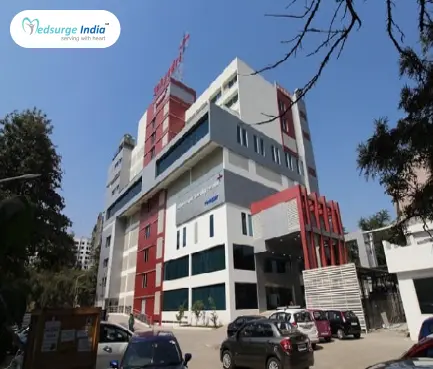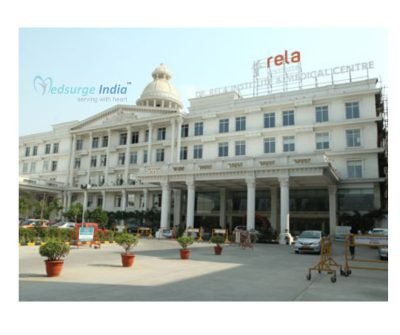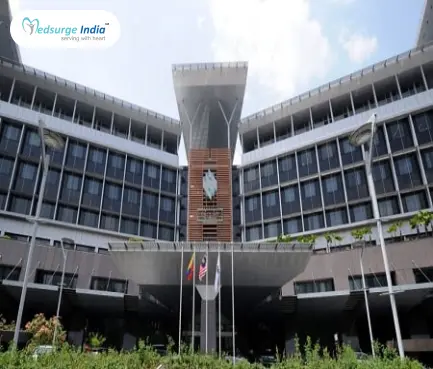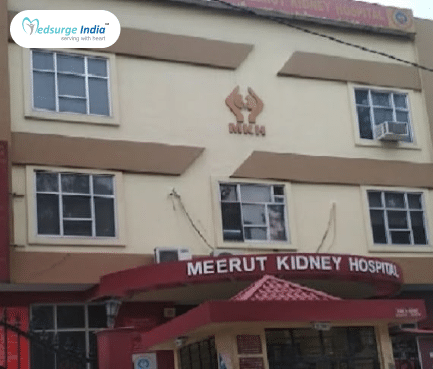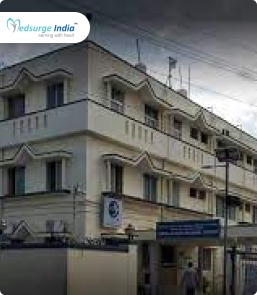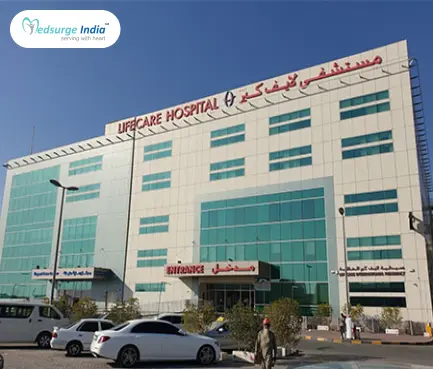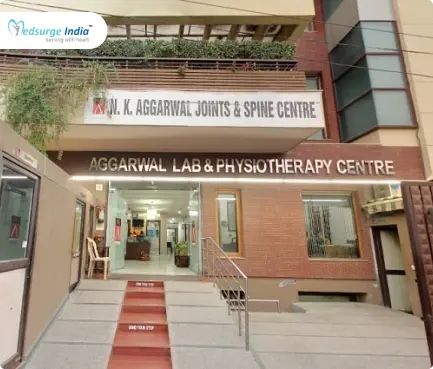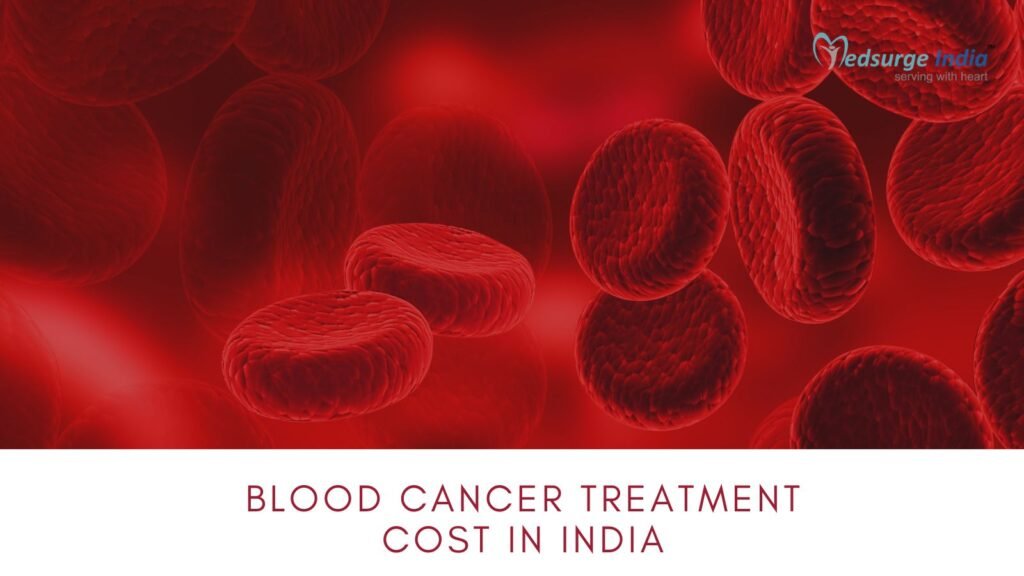
A type of cancer that affects your blood cells is called blood cancer. Myeloma, lymphoma, and leukemia are among the most prevalent forms of blood cancer. There are more varieties known as MPNs and MDS.
DNA alterations, or mutations, in blood cells, are the root cause of blood cancer. This causes the blood cells to start acting oddly. These alterations are virtually often connected to external factors. These are lifelong experiences rather than inherited flaws that can be passed down through the generations.
Blood cancer treatment in India must be performed by a board-certified hematologist-oncologist and the success rate of blood cancer treatment in India is about 60 %. If the patient undergoes surgery on time, the outcomes may be better. Furthermore, Blood cancer treatment cost in India is quite affordable when compared with other well-known countries.
What Is Blood Cancer?
Blood cancer has an impact on how your body creates blood cells and how well those cells function. The soft, sponge-like material called bone marrow, located in the middle of your bones is where most blood malignancies begin. Red blood cells, white blood cells, and platelets develop from stem cells made in your bone marrow.
Healthy blood cells prevent infection, provide oxygen throughout the body, and regulate bleeding. When your body’s process for producing red blood cells is disturbed, blood cancer can occur. Blood cancer causes an excess of aberrant blood cells over normal blood cells, which can lead to a cascade of different medical diseases. As medical professionals discover novel treatments for blood cancer, more patients are surviving the disease longer.
What Are The Types of Blood Cancer?
There exist three distinct forms of blood cancer, with numerous subgroups within each. Here are some common types with each category:
Leukemia:
Leukaemia is a type of cancer that affects the body’s blood-forming tissues, including the bone marrow and lymphatic system. Children are more likely to get certain types of leukemia. There are various forms of leukemia.
- Acute Lymphoblastic Leukemia (ALL)
- Acute Myeloid Leukemia (AML)
- Chronic Lymphocytic Leukemia (CLL)
- Chronic Myeloid Leukemia (CML)
Lymphoma:
A malignancy that starts in lymph system cells is referred to as lymphoma.
- Hodgkin Lymphoma
- Non-Hodgkin Lymphoma (NHL)
Myeloma:
A malignancy of the plasma cells is called myeloma, often known as multiple myeloma. White blood cells called plasma cells produce antibodies that shield the body from infection. The cells that cause myeloma overgrow excessively, pushing out healthy bone marrow cells that produce platelets, red blood cells, and other white blood cells.
What Are The Symptoms of Blood Cancer?
The signs and symptoms of blood cancer differ according to the kind of the disease; nonetheless, all three have some characteristics:
- Fatigue: This is the state of being too exhausted to carry out your regular tasks. Also possible is weakness.
- Chronic fever: Your body may experience a fever as a defense against an infection or as a reaction to aberrant cancer cells.
- Sweating that suddenly starts while you’re asleep, ruining your clothes and bedding, is known as “drenching night sweats.”
- Unusual Bruises or Bleeding: Everyone has bruises, bumps, and other injuries that cause bleeding. Unusual bleeding and bruises are defined as persistent bleeding and bruises that do not go away after two weeks.
- Unexpected or unexplained weight loss: Unexpected weight loss lasting six to twelve months, or 10 pounds.
- Recurrent infections: Recurrent infections could indicate a problem with your immune system.
- Enlarged liver or spleen, or swollen lymph nodes: These could be indications of lymphoma or leukemia.
- Bone Discomfort: Tender patches or pain in your bones may be a symptom of leukemia or myeloma.
Many of the symptoms of blood cancer are similar to those of other, less serious disorders. None of these signs indicate that you have blood cancer. However, if you experience any symptoms or physical changes that persist for more than a few weeks, you should get in touch with your healthcare professional.
Blood Cancer Treatment Cost in India
Affordable Blood cancer treatment cost in India starts from 20,000 USD. The treatment will be based on the patient’s clinical condition as indicated by diagnostic results and their symptoms. Before the treatment for Blood Cancer Treatment in India, a hematologist-oncologist must consider a number of things, just like with any procedure. Following below are the prices of the subtypes of blood cancer Treatment cost in India.
Disease Costs
Acute Lymphoblastic Leukemia (ALL):- 17,500 USD
Acute Myeloid Leukemia (AML):- 20,000 USD
Chronic Lymphocytic Leukemia (CLL):- 18,000 USD
Chronic Myeloid Leukemia (CML):- 17,000 USD
Hodgkin Lymphoma:- 17,500 USD
Non-Hodgkin Lymphoma (NHL):- 19,000 USD
Multiple Myeloma:- 18,500 USD
Chemotherapy & Bone Marrow Transplant Cost For Blood Cancer Treatment
Chemotherapy:- 800 USD -1500 USD
Bone Marrow Transplant:- 18,000 USD – 20,000 USD
Factors That Can Affect Blood Cancer Treatment Cost in India
Blood Cancer Treatment Cost in India can vary depending on a number of criteria, such as:
- Need for post-operative care.
- The package of Blood Cancer Treatment Cost in India can depend on the hospital’s preference.
- Doctor’s competence and experience in the subject.
- The patient’s situation: The patient’s disease and whether additional modalities are required for comprehensive treatment.
- Duration of hospitalization and stay for Blood Cancer Treatment in India.
- Blood Cancer Treatment Cost in India can depend on the type of hospital and rooms you stay.
These are some of the main factors driving thousands of patients to India from around the world for medical care. For foreign patients traveling to India, Medsurge India provides the finest Blood Cancer Treatment cost in India at a reasonable cost, all while being supervised by top medical professionals. Click here for the medical visa form.
How is Blood Cancer Diagnosed?
Often, a physical examination is performed to assess the patient’s overall health before a diagnosis is made. The patient’s medical history is reviewed, the patient’s body and lymph nodes are examined, and any bruises or infections are looked for by the care team.
To diagnose blood cancer, many tests and procedures can be employed. Depending on the probable form of blood cancer, each patient has different demands. When diagnosing a patient, the care team may suggest testing and jointly assess all test results.
- Complete Blood Count (CBC): Your blood cells are measured and counted during this test.
- Blood Chemistry Test: This examination quantifies the various compounds and elements present in your blood. To find out more about your condition, your healthcare professional may occasionally prescribe particular blood tests for cancer.
- Computed Tomography (CT) scan: This examination builds three-dimensional pictures of your soft tissues and bones using a sequence of X-rays and a computer.
- Magnetic Resonance Imaging (MRI) scan: To check for indications of leukemia or consequences from lymphomas impacting your spine, your healthcare professional could request an MRI.
- PET Scan: This diagnostic method creates pictures of your organs and tissues in action.
- Bone Marrow Biopsies: Your doctor may do a bone marrow biopsy to determine the proportion of healthy and aberrant blood cells in your bone marrow. Your bone marrow sample may also be tested for DNA alterations that could promote the development of cancer.
- Blood Cell Examination: Medical professionals may draw blood samples for microscopic examination in order to check for alterations in the appearance of blood cells.
Get Free Cost Estimation
Procedure
What Are The Treatment Options of Blood Cancer?
Treatment for blood cancer is not standardized. Certain forms of blood cancer respond favorably to particular treatments. There are serious adverse effects from several blood cancer treatments. Before proposing a course of therapy, medical professionals take into account a number of criteria, such as your age, general health, the type of blood cancer you have, and any adverse effects from specific treatments. Typical blood cancer therapies include the following:
- Chemotherapy: Chemotherapy is the main treatment for blood cancer. It works by destroying cancer cells to either stop the cancer from spreading or completely eradicate it. Different medicine types are used by medical professionals for different forms of blood malignancies.
- Radiation Therapy: To treat leukemia, lymphoma, or myeloma, medical professionals may employ radiation. Radiation damages the DNA of aberrant cells to prevent them from procreating. Radiation therapy is frequently combined with other therapies by medical professionals. Radiation therapy might be used to treat some symptoms.
- Immunotherapy: This medical intervention fights cancer by boosting your immune system. Immunotherapy can increase the number of immune cells in your body or help the immune cells you already have locate and destroy cancerous cells.
- Targeted Therapy: This cancer treatment focuses on the genetic changes or mutations that cause healthy cells to become aberrant.
- CAR T-cell Therapy: Using T-cell lymphocytes, a subset of white blood cells, medical professionals can treat cancer more successfully. When all previous therapies have failed, medical professionals may employ CAR T-cell therapy to treat multiple myeloma, non-Hodgkin’s lymphoma, and B-cell acute lymphoblastic leukemia.
- Stem Cell Transplant: Healthy blood-forming stem cells are infused into the body during a stem cell transplant. It is possible to extract stem cells from the umbilical cord, circulating blood, and bone marrow.
How to Choose a Hospital for Blood Cancer Treatment in India?
Hospitals that treat Blood Cancer Treatment in India are renowned for their services in patient care and hospitality. The hospitals that do Blood Cancer Treatment in India have some of India’s top doctors and specialists who are experts in their professions. For an international patient, selecting a good hospital for treatment might be challenging. It is a crucial choice that needs to be made while keeping a number of things in mind, such as:
- Quality certificates and accreditations
- Hospital and transportation facility location
- Team of doctors and surgeons
- Advanced diagnostic and therapeutic equipment
- International patient assistance
How Can Medsurge India Help?
Medsurge India is a prestigious support system for patients looking for doctors, hospitals, and specialized treatments. We’ll find the most suitable medical options for you. Our team will provide you with a list of licensed, renowned, and trusted physicians and medical facilities in relation to your medical needs. Apart from that, we offer a treatment strategy that fits your budget and, we assist patients with obtaining travel authorizations, medical visas, and a multitude of other things.
The Most Important Frequently Asked Questions
Q: Is Blood Cancer Curable?
A: As with other cancers, leukemia has no known cure at this time. After diagnosis and therapy, people with leukemia might go into remission, a condition where the cancer is no longer visible in the body. However, if the cancerous cells stay in your body, it can come back.
Q: How Much Time Can Someone with Blood Cancer Survive?
A: The 5-year survival rate for patients with chronic lymphocytic leukemia is 88.2 percent. With Hodgkin lymphoma, 88.5 percent of patients survive five years after diagnosis; 94.4 percent of patients under 45 years of age survive. Seventy-seven percent of individuals with non-Hodgkin lymphoma survive five years following diagnosis.
Q: Is the Spread of Blood Cancer Rapid?
A: Leukemias are classified according to two factors: the kind of white blood cell impacted (myeloid or lymphoid); and the rate at which the illness progresses. While chronic leukemia develops slowly over months to years, acute leukemia emerges unexpectedly and progresses swiftly.
Q: What Is Blood Cancer’s Primary Cause?
A: Although the exact causes of blood malignancies are unknown, it is thought that a mix of environmental and genetic factors have a role in their development. There is a correlation between smoking, radiation exposure, and exposure to specific chemicals, and a higher risk of some blood cancers.



